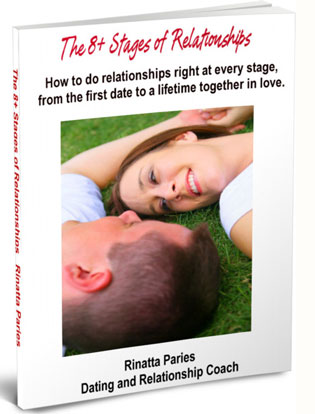 Emotional resilience is the capacity to withstand stress and cope with it in a productive, positive manner.
Emotional resilience is the capacity to withstand stress and cope with it in a productive, positive manner.
Emotionally resilient men and women have more positive dating experiences and better relationships and marriages. They have closer relationships, more positive view of themselves, are better at managing strong feelings, and are good at communication.
Emotional resilience is considered of such importance that the American Psychological Association has a task force dedicated to researching it.
You can learn more about emotional resilience on Wikipedia and on the PBS This Emotional Life program website.
How can you become more emotionally resilient, so that your relationship life becomes a more positive experience?
Emotional resilient is emotional strength, and works like a muscle of sorts. It can be built by exercising it repeatedly over time, the same way you would build a physical muscle in your body.
In this article I am going to tell you how to start building your emotional resilience muscle. But first let’s look at how an emotionally resilient response looks in comparison to the average response in dating and relationship situations, and why emotional resilience is better.
Dating:
Stressor: Out on date, wondering what the other person thinks about you.
Average response: I wonder if I am liked, if I am measuring up.
Emotionally Resilient Response: I like myself. Do I like this person?
Resilience Outcome: Better feeling on a date, better decision making.
Stressor: In a group of people, hoping to be approached and found attractive.
Average Response: I can’t compete with all these people who are better than me.
Emotionally Resilient Response: I have so much to offer. Do I see anyone who looks interesting that I want to connect with?
Resilience Outcome: Connection with others, the feeling of belonging.
Stressor: Dating relationship ends.
Average response: He/she does not want me because there’s something wrong with me. I am not good enough.
Emotionally Resilient Response: We were not a fit, but it was a good experience.
Resilience Outcome: More peaceful and faster transition back into dating.
Relationship:
Stressor: Partner is doing/saying something negative.
Average Response: Why is he/she saying this? Is it always going to be like this?
Emotionally Resilient Response: I know my partner cares about me. I am curious as to what his or her motivation might be for this?
Resilience Outcome: Conversation that leads to more mutual understanding and closeness.
Stressor:Partner pulls back, wants space.
Average Response: Anger, frustration, hurt. I am going to make him or her come back.
Emotionally Resilient Response: I am ok. It’s ok for my partner to get a little personal space. I will keep watching this to see if it becomes a problem.
Resilience Outcome: Peace. often the return of the partner faster. Feeling good about self.
Stressor: Disagreement about how something should go or be done.
Average Response: Fighting, trying to prove each other wrong, anger.
Emotionally Resilient Response: Working towards understanding of each other. a win/win or agreeing to disagree.
Resilience Outcome: Cooperation, closeness, satisfaction in the relationship.
Can you see that the emotionally resilient response will create a better outcome for you in dating or in your relationship or marriage?
How to begin to build your emotional resilience muscle, creating much better dating or relationship or marriage outcomes:
Dating ~ Work on these:
Get that you are really ok. Find a way to love, like and accept yourself just the way you are.
Stop pretending that you can read others mind and what they think about you.
Do this: Think more positively about yourself and assume others do as well.
Relationship/Marriage ~ Work on these:
Refrain from imagining worst case scenarios about your partner’s motivations
Refrain from assuming that if something negative happens it will always happen
Do this: Be curious about what’s going on with your partner and you, work on trusting that you are going to be okay no matter what.
These are just small steps towards emotional resilience. There’s much more that you can do to respond to what happens in dating and relationships in a manner that produces better results.
However, even with these small steps, can you see the changes that are possible? What would happen if you simply worked on one of the starting steps I gave you above? Try it and see for yourself how things shift!
[stextbox id=”red_box”]Want to learn how to handle dating or your relationship or marriage in a more resilient manner? The Get Clarity Coaching session is a great place to start.
In this 30-minute session I will train you in certain emotional resilience skills that will improve your dating, relationship or marriage experience.[/stextbox]
